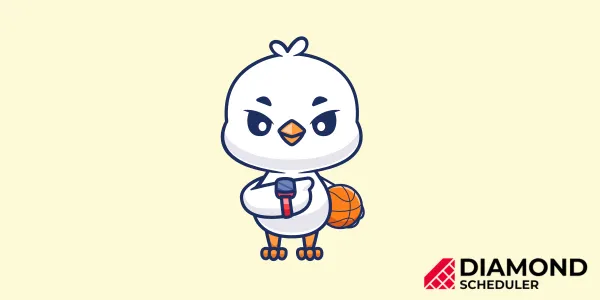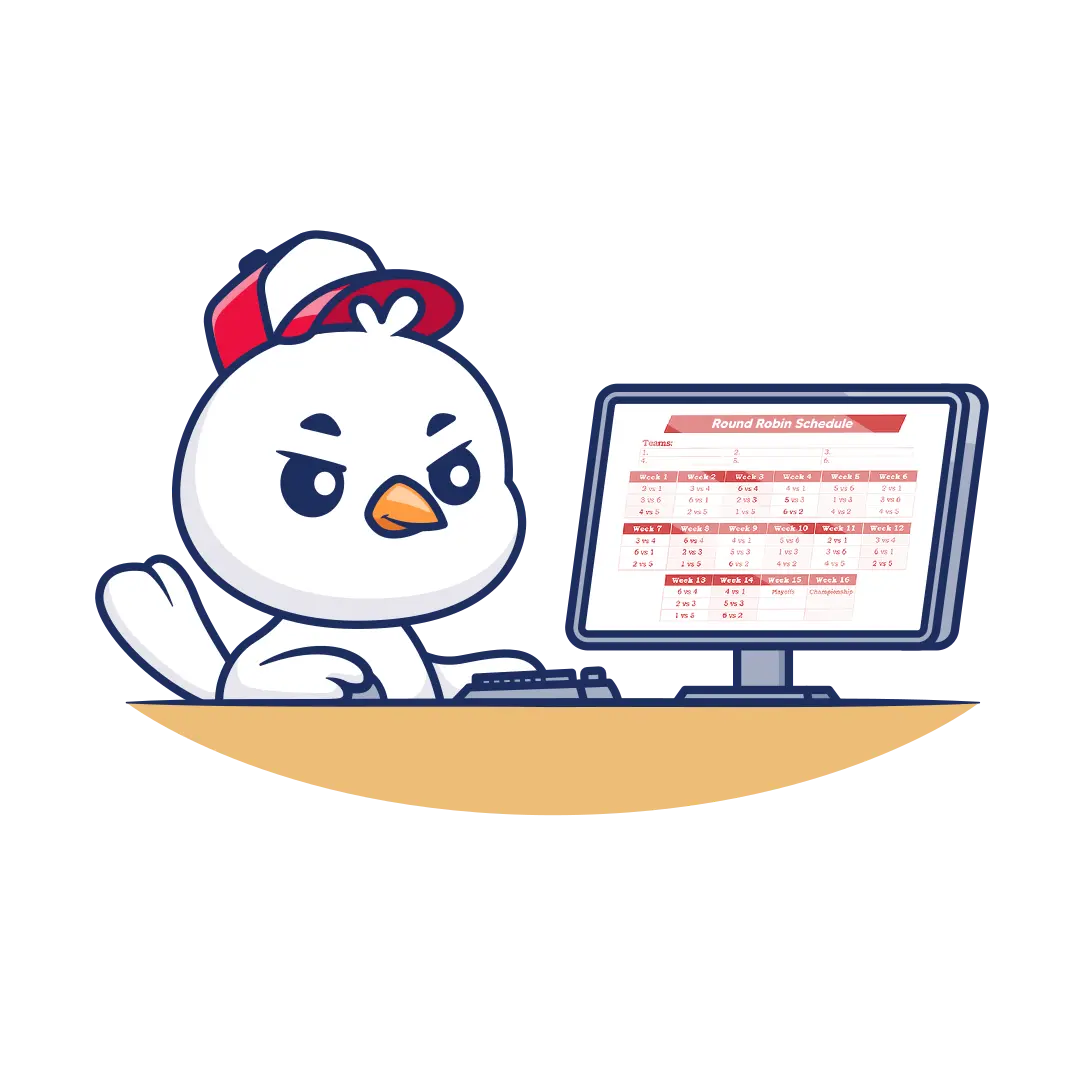
Sports General Manager: Ultimate Sports Career Guide
A career as a sports general manager can be a fulfilling and exciting position for those interested in the sports industry.
People with strong leadership and the skill set to run a business can excel in this field.
Many times, especially within prestigious leagues, sports general managers will have the fate of professional teams and athletes in their hands.
The average salary for a sports GM can oftentimes be well into the six-figure range, but with the high compensation comes tremendous responsibility and pressure and critique from the public eye.
Below, we'll break down some key aspects of a sports general manager position and what to expect if you're looking to pursue a career in the field.
What exactly is a sports general manager?

Similar to other Sports and Management Recreation Jobs, a sports general manager has a broad scope of duties.
A sports GM oversees all aspects of the team's management, including athlete contracts and development, as well as working closely with the coaching staff.
In a professional sports setting, they will also usually be responsible for some aspect of managing finances and acting as the team president or spokesperson.
While managing the team is an integral part of the position as a sports general manager, overseeing the marketing and accounting department is equally as important.
A sports general manager shares similar responsibilities as a CEO and answers solely to the team owner.
Read our related job guide on becoming a sports director. Learn what sports directors do and why this career can be rewarding!
What kind of salary can you expect as a sports general manager?
A sports general manager salary can depend on several factors, including the degree at which the team plays, whether that is at a collegiate, minor league, or professional level.
The person's experience in the position or related experience can also play a factor.
Based on pay data collected by Glassdoor, the average total pay per year for a sports general manager is $131,759.
This includes salary as well as bonuses, commissions, and profit sharing.
The minimum total pay is $79,000 and the maximum is $225,000. This data also indicates the "most likely" range to be between $101,000 and $176,000, falling within the 25th and 75th percentile of the pay data.
However, at a professional level, it's not uncommon for a sports general manager to make anywhere from $1 million to $6 million a year. Pat Riley, the former GM of the Miami Heat took home well over $11 million in 2016 alone.
What are the responsibilities of a sports general manager?

The level of involvement on the ground is just as crucial for a sports general manager as is the backroom operations.
Some GMs may focus only on team management while others are responsible for all aspects of operations. All of this can depend on the sport and level at which it is being played.
If you're thinking of becoming a sports general manager, apps for managing sports teams can be useful tools.
Check out these top-rated apps for sports team management and discover what makes them so great!
Here is a list of common duties and responsibilities of a sports general manager:
Evaluating talent
Recruiting new players
Dismissing players
Hire head coach
Personnel decisions
Adhering to and managing policies and rules
Managing the teams marketing and media
Public relations and spokesperson appearances
Management of finances
Negotiating coach and player contracts
Overseeing daily team operations
Learn more about sport-related positions by checking out our guide to careers as a Sports Coordinator.
What are some useful skills and knowledge to have?
Sports general managers spend a lot of their time negotiating with vendors and communicating with different departments.
They also build relationships with head coaches and athletes so a vast skill set with the ability to communicate effectively can be beneficial for long-term success as a GM.
The following are some key skills to have in your bag or to develop:
1. Communication skills
A successful general manager will have great communication skills in order to negotiate and to relay important information across departments.
Having strong communication skills will also be helpful in securing a career as a sports general manager.
2. Organization skills
This goes hand in hand with communication.
The ability to organize and coordinate across departments for a sports general manager is an expected quality for the position.
3. Business knowledge
Having a firm grasp of certain business concepts is something all sports general managers have picked up along the way, whether through experience or education.
Business acumen with a focus in marketing, strategic planning, and public relations can be extremely useful.
4. Time management
Balancing the management of not only all aspects of the team but also everything that comes with operations is not always an easy feat.
A successful general manager is able to manage time effectively in order to accomplish what is needed across departments.
5. Analytical skills
A winning team will have a competitive advantage somewhere within the organization, and that starts with the sports general manager.
Working with coaches and recruiters to analyze data is just one aspect of strong analytical skills that can help build a successful sports team.
What are the steps to becoming a sports general manager?

There isn't a surefire set of steps to becoming a sports general manager as there are many career paths that can lead you to this position.
Oftentimes, especially within the sport of soccer, former players become GMs, while others may gain all their experience through college.
The following are some common steps to becoming a sports general manager.
Step 1. Obtain a sports management degree
Earning a sports management degree will set you on the right path to becoming a sports general manager as many employers will expect some form of bachelor's degree in business or physical education if you do not have extensive experience in the sports industry.
Step 2. Network
Networking is absolutely imperative when looking to become a sports general manager.
Joining a sports club or networking with peers is a great way to get your foot in the door.
Step 3. Do an internship
Getting hands-on learning as an intern will help you gain experience in sports management.
Having that network is helpful in getting involved with a sports team and finding an internship.
Most sports general managers got their start at a lower-level position.
Step 4. Apply for positions
Once you've built a solid foundation of experience you can start to apply for entry level jobs in sports management.
You can also work your way up as part of the coaching staff or various other departments. Taking advantage of your network and optimizing your resume is a big part of this step.
This video is great to refer to for additional help:
Resources for a sports general manager
The future of sports management continues to become more tech-driven and with that, comes many new tools that help a sports general manager in decision-making and organization.
There are tons of software tools to utilize for time tracking, analysis, sales, and the list could go on. But one crucial task of a sports general manager is creating team schedules.
Diamond Scheduler is a top-of-the-line software that allows you as a sports general manager and your coaching staff to manage all aspects of team scheduling.
Complex scheduling can be strenuous, but Diamond Scheduler offers a fast and easy option that allows you to import and export, develop constraints, and utilize integration of SportsEngine.
Jeff Tipper is an avid sports fan who has a strong passion for basketball. A graduate of the University of New Mexico with a Bachelor's Degree in Operations Management, Jeff has experience in operations and claim processing and spends his free time writing articles and blogs focused on sports and various business topics.



